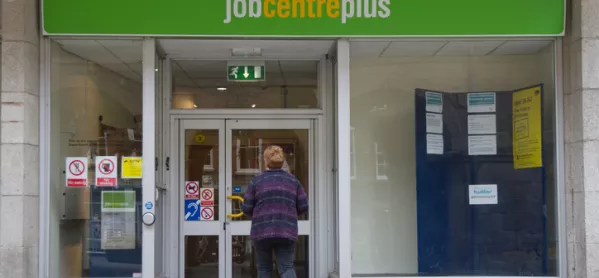Youth unemployment ‘will cost £6.9bn in 2022’

The level of youth unemployment will remain high even as other areas of the economy recover, a new report by the Learning and Work Institute and the Prince’s Trust has warned.
The report, sponsored by HSBC UK, says that the economic cost of youth unemployment, in terms of lost national output, is forecast to rise to £6.9 billion in 2022, and the long-term cost to young people entering the labour market in 2021, in terms of lost earnings and damage to employment prospects, is forecast to be £14.4 billion over the next seven years.
Earlier this month, new data from the Office for National Statistics showed that almost 800,000 young people were classed at Neet (not in education, employment and training).
In his spring budget, chancellor Rishi Sunak announced new funding for both traineeships and apprenticeships to support people into work. Traineeships are set to get a £126 million boost to fund 40,000 more places, and employer incentives for apprenticeships will rise to £3,000, regardless of the age of the apprentice.
News: Huge rise in young people classed as Neet
Budget 2021: What it means for education
Long read: Stephen Evans and his mission to make a difference
Stephen Evans, chief executive of the Learning and Work Institute, said the legacy of pandemic will be with us for years in terms of higher youth employment.
“Young people have been at forefront of the coronavirus jobs crisis. While we are hopefully slowly emerging from the worst of the pandemic, the legacy will be with us for years to come in the form of higher youth unemployment,” he said.
Covid: The cost of youth unemployment
“This is not just bad for young people. It will have a huge hit on our economy and our public finances, and it risks a long-lasting scarring impact on those affected.
“If we are to tackle the looming youth jobs crisis, the Learning and Work Institute believes the government must work with partners to urgently roll-out a ‘youth guarantee’ to support young people to access a job, an apprenticeship, education or a high-quality training opportunity.”
The report also reveals disparities in the impact of the Covid crisis on different groups of young people, and raises concerns that the pandemic has exacerbated pre-existing inequalities and will continue to do so.
Analysis shows that the decline in working hours for young people with no qualifications (34 per cent) has been five times higher than the decline for those with a degree-level qualification (7 per cent). Demand for employees with lower-level qualifications is projected to fall in the short, medium and long-term, raising concerns that the employment prospects of young people who lack higher-level qualifications will be further negatively affected.
The report also says that the decline in hours worked for black young people (49 per cent) has been three times higher than for white young people (16 per cent).
When it comes to employers, the research found that two in five (41 per cent) feel the pandemic will have a negative impact on young people’s prospects in their sector in five years’ time. A survey of young people shows that one in four (26 per cent) expect their employment prospects will still be impacted in five years’ time.
Jonathan Townsend, chief executive of the Prince’s Trust, said youth joblessness impacts self-esteem and mental health for years to come. “This report is a stark warning of how the current economic crisis will have a scarring effect on young people, their earnings and prospects. We also know, from 45 years’ experience of working with young people, that youth joblessness can impact self-esteem and mental health for years to come, if we fail to act,” he said.
“Government, employers and charities must work together to ensure that the young people who need the most support are not forgotten. They need the opportunities to upskill, retrain and access job opportunities, or we risk harming not only our young people’s futures but the recovery of our economy.”
The Prince’s Trust helps young people to build confidence and skills for work, education and training. The employability courses offered by the trust are run both in person and online and give young people the practical and financial support needed to stabilise their lives. The youth charity is working with employers to deliver the government’s Kickstart scheme by providing quality employability support to young people on placements.
The report’s recommendations in full
The Learning and Work Institute recommends the following four actions to limit the rise in youth unemployment, and the damage this will do to young people and the economy.
- Introduce a “youth guarantee”, which ensures all young people can access a job, an apprenticeship or a training opportunity.
- Introduce a “job guarantee” to create paid employment opportunities for young people at risk of long-term unemployment, at a cost of £650 million.
- Expand and extend the Kickstart scheme until the end of 2022 at a cost of £1.3 billion.
- Increase the apprenticeship hiring incentive to £5,000 and extend it to September 2022 at a cost of £400 million.
You need a Tes subscription to read this article
Subscribe now to read this article and get other subscriber-only content:
- Unlimited access to all Tes magazine content
- Exclusive subscriber-only stories
- Award-winning email newsletters
Already a subscriber? Log in
You need a subscription to read this article
Subscribe now to read this article and get other subscriber-only content, including:
- Unlimited access to all Tes magazine content
- Exclusive subscriber-only stories
- Award-winning email newsletters